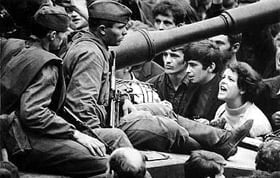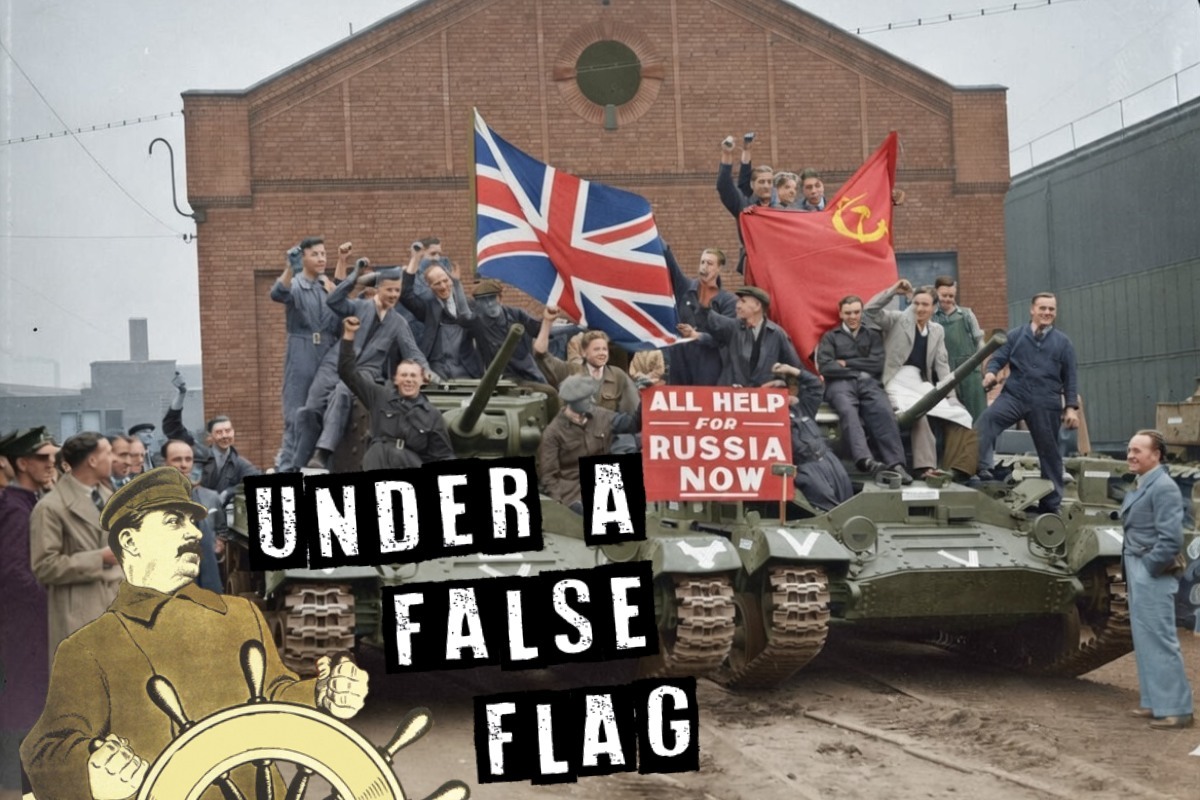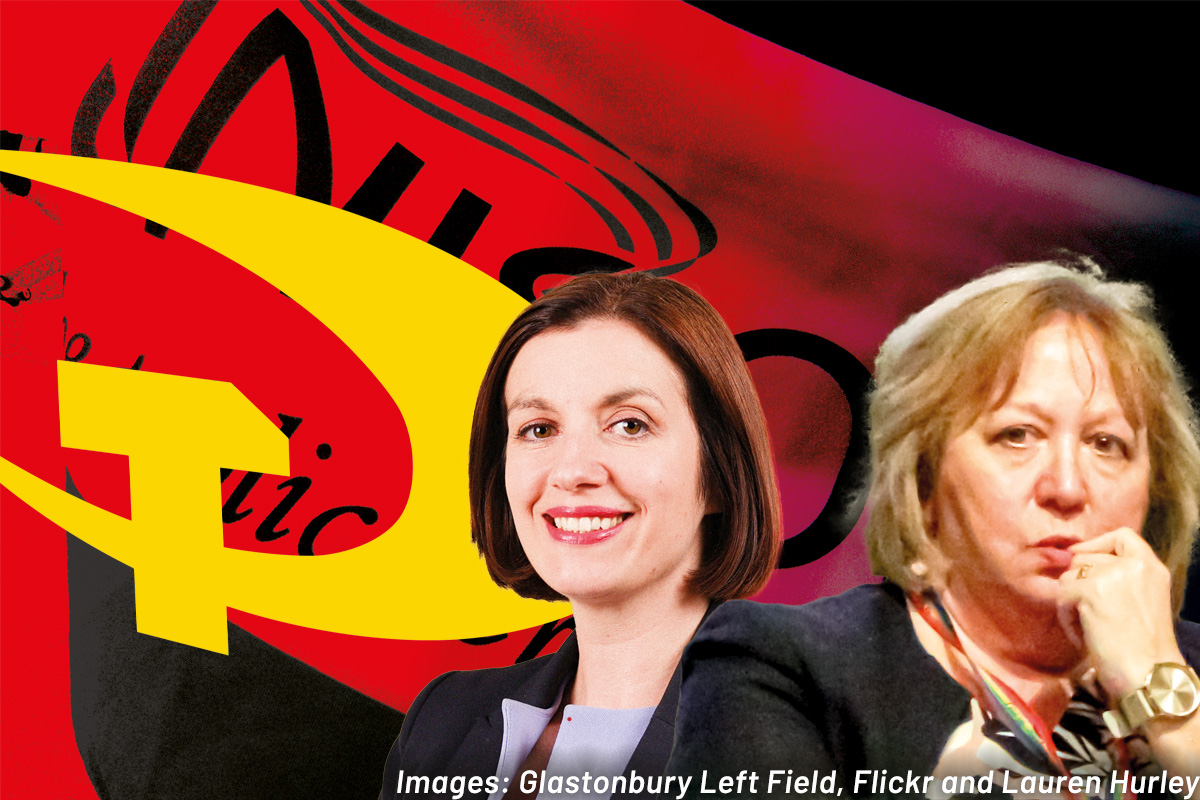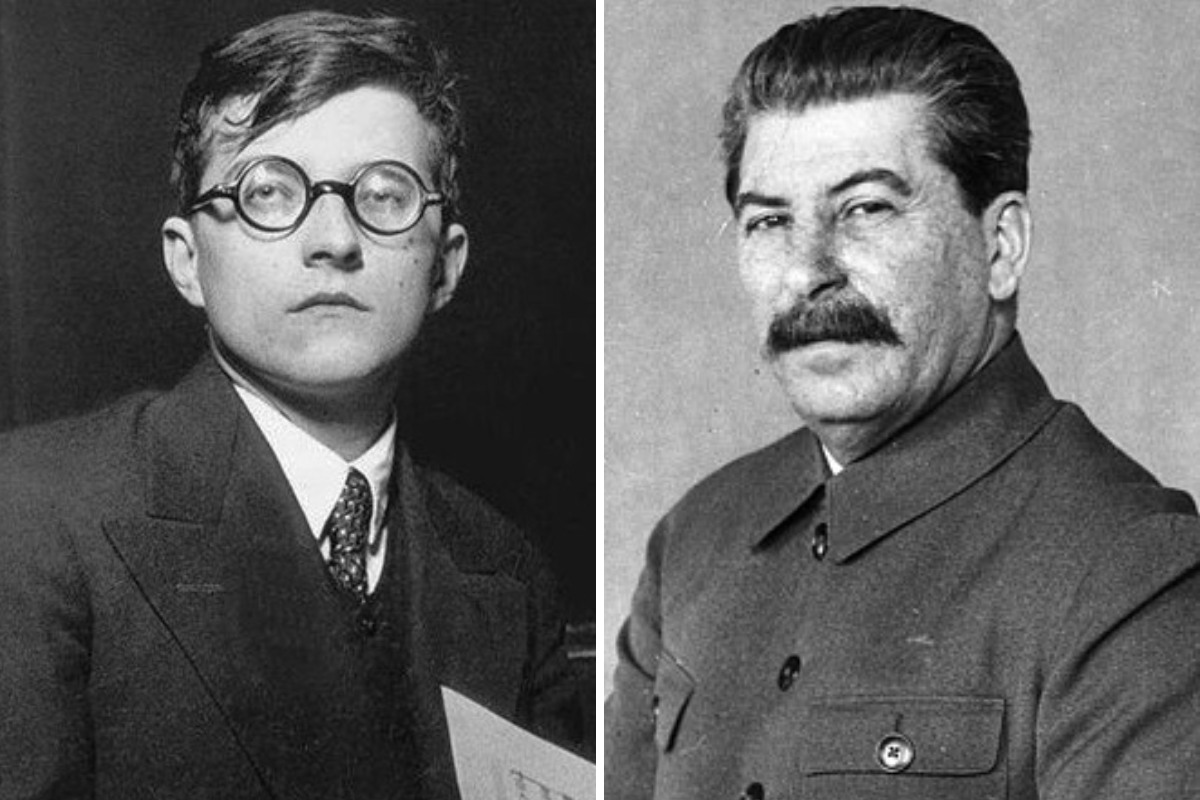Eastern Europe in Turmoil – effects rock Stalinist parties
The movement in Czechoslovakia
has not ended. It has barely
begun. We are witnessing
the
beginnings of the political revolution in Eastern Europe. The Czech events,
although far less
advanced than the Polish
and
Hungarian events of 1956,
have
shaken to the core every
one
of the bureaucratic cliques in Eastern Europe and Russia.
In March, as a direct result of the ferment in Czechoslovakia, riots
broke out in Poland, in which at one stage, a crowd of 10,000 people
wrecked
the Ministry of
Culture, shouting "long live Czechoslovakia",
and battling
with the police. And whereas in
1956, the students and workers
sang Polish nationalist songs, in 1968 they began their demonstration
by singing the ‘Internationale’.
Subsequently, the "liberal" committee, with dastardly cynicism, attempted to whip up
the most rotten
anti-semitic prejudices of the Polish people in order to discredit the movement, to prove that it had no support among
"Poles" and "workers".
And yet, the figures, published later,
of those arrested, showed that
out of 1,208 only 367 were
students. The rest were
described
as "hooligans".
In Poland, as in Czechoslovakia, the
bureaucratically-run economy has ground into an impasse. Over the last two years, wages have been frozen, while prices
are soaring. In the six
months prior to the March
demonstrations,
the cost of living practically
doubled. Most of the concessions
granted by Gomulka in 1956, (who
at that time was being idolised by
the Western press, and even by
certain self-styled "Trotskyists") have either been watered down or taken back
altogether.
The growing discontent and impatience of the workers, and especially
of the youth, could easily erupt into action if only a lead were given.
That is the
explanation of the brutal suppression of the student demonstrations in
Poland.
Even more significant were the recent disturbances in Yugoslavia.
Inspired by the French
events, and influenced
by the crisis of the Yugoslav
economy and the wide-spread suffering of the masses, students in
Belgrade staged protest demonstrations against
the wealth and
privileges of the bureaucracy, demanding the equalisation of salaries,
an end to the power of the "red bourgeoisie" and to the policies of
breaking
up the planned economy and
handing back the state-owned
property to private owners.
The students even took over a whole suburb and ran it for a time. The students’ leaflets received an enthusiastic reception
from the workers.
Newspapers reported people standing in groups, studying and discussing the views
expressed. Such was the
sympathy of the whole population,
that violent repression
was
out of the question. The
"arbiter"
Tito had to step forward
and
promise to "look into" the students’ demands.
Wherever one looks in Eastern Europe, the picture is
one of increasing
restlessness of the masses, expressed first and foremost among the
intelligentsia. The intelligentsia in general, and the students in particular represent, as Marxists have
explained, a most sensitive
barometer of social discontent: this is doubly and trebly true of Eastern Europe and
Russia, where the
overwhelming majority of students are not, as in the West, part of the privileged
minority of society, but the
sons and daughters of workers and
peasants.
The growing unrest, on the one hand, and the increasing nervousness of the bureaucracy on the other was clearly revealed
at the recent World Youth
Festival in Sofia, where the
usual rigged Stalinist puppet-show
of "Peace and Friendship" gave way to splits, disagreements and open violence,
when the Bulgarian
police beat up a number
of
delegates and cameramen.
The Bulgarian authorities, apart from anything else, were probably worried about the
effects of the discussions
on their own workers-who had been squeezed to pay for the lavish extravaganza when in January, by decree,
the prices of all necessities
of life were doubled, and
bank
savings above a certain
amount
confiscated by the government.
The Czech events cannot but exercise a powerful influence on the people of Eastern
Europe and Russia. In
particular the thousands
of
Russian, East German, Polish, Bulgarian and Hungarian troops stationed in Czechoslovakia
will carry home
the "bacillus of revolution".
A week after the invasion,
the effects were already
apparent
in the most repressive Stalinist
regime in Eastern Europe, East
Germany.
Attempts by Ulbricht to get the East German workers to sign
petitions in support of the action of the Warsaw Pact met with refusals
to sign. Hundreds of
people entered the Czech
embassy and other buildings
of Czech delegations in
defiance
of the government, which
had
surrounded these buildings with police.
There was even a demonstration of 4,000 workers at Eisenhüttenstadt protesting against the invasion.
In spite of all the ravings of the Ulbricht press, the jamming of Western broadcasts and
the banning of Czechoslovak German language newspapers, the truth has seeped through to the East German working class.
The intervention of Russian tanks has temporarily halted the
movement in Czechoslovakia.
But the movement of
the workers of the East
against
bureaucratic rule can break out anywhere, causing a new and even deeper
crisis of Stalinism. The rule of the bureaucracy now represents an
absolute
fetter on the development
of the planned economies of Russia
and Eastern Europe. The needs of the people can no longer be met by a
system whose every pore
is choked by bureaucracy, mismanagement and waste.
In Russia itself, for all the striking progress that has been made
by the nationalised, planned economy, the figure for wastage of
production has been
put as high as 30-50%.
Along this road, no further
progress can be made. The
needs
of the planned economies
themselves
demand an end to the rule of the
parasites and the introduction
of a democratic plan of
production
to meet the needs of the
people
themselves.
Such a plan could only succeed on the basis of a Socialist Federation of Eastern Europe and Russia. The continuation of the
old capitalist national
divisions is the most powerful
brake on the productive
forces
of Eastern Europe. It is a monstrous distortion
of socialism that
"socialist" Rumania and "socialist" Russia actually
have territorial
disputes.
It is crazy that, while East Germany
suffers from a shortage of labour, there are 400,000 Yugoslavs who have been forced to seek work in the capitalist
West. Earlier this year,
"Peoples’ Bulgaria", suffered from a labour shortage which means that some enterprises only work at 45%-50% capacity (The
Economist 20 Jan)
while over the border in
Yugoslav
Macedonia, where the people
speak the same language,
there
is mass unemployment.
Most criminal of all is the spectacle of Russian and Chinese divisions facing each other over a completely artificial
line drawn up in the last
century by the Russian Tsar and
the Chinese Emperor! The
Russian
bureaucracy is desperately trying to force or cajole workers away from Moscow
and Leningrad to develop the enormous potential
wealth of the Far East, while forcibly
deporting Chinese who try to enter this area.
The
survival of these senseless antiquated national divisions is not the result of
"nationalism" among the working classes of the East. They were never consulted
about it. It is purely and simply the result of selfish greed and narrow
nationalism of the bureaucratic cliques, who are not prepared to sacrifice an
inch of "their" territory, to share their privileges, power and income with the
other bureaucrats.
Only by
putting an end to the rule of the bureaucracy will the workers and peasants of
Russia, Eastern Europe and China be able at last to link hands in a mighty
Socialist Federation, which would open up the road to a tremendous development
of the productive forces, combining all the wealth, resources and know-how of
three continents, as the first step in the direction of a socialist world.
Communist Parties
One of the
most far reaching effects of the Czech events will be the speeding up of the
process of the nationalist degeneration of the Stalinist parties. In 1956 the
Communist Parties lost thousands of members in the splits that followed the
crushing of the Hungarian Revolution.
Now the
Communist Party leaders are not prepared to carry the can for the actions of
the Russian bureaucrats. Coming hard on the heels of the sell-out of the French
Communist Party in May, the Czech events have again split the foreign Communist
Parties as a single glance at the letter column of the ‘Morning Star’ shows.
The British
Communist Party along with the French, Italian and other Parties has
dissociated itself from the Russian action. It could hardly be otherwise, after
Gollan (the General Secretary) had described the Bratislava Agreement as proof
of "the everlasting union of socialist countries".
Nevertheless,
the explanation of the Czech events put forward by the British Stalinists is
false through and through. They try to portray the conflict as a "mistake" on
the part of the "Soviet comrades". In the same way they previously described
the crimes of thirty years of Stalinism as a "mistake" and the mistakes of a
single man, at that!
In place of
a serious analysis they talk about "tragedy" and shed crocodile tears,
pretending that this was the very first instance of such an action in all the
spotless annals of Russian Stalinism! (Morning Star 22nd August).
But for
Marxists the task is "neither to weep nor laugh, but to understand". The
Communist Party leaders are incapable of explaining the event to their
rank-and-file. To do so would be to analyse the role of the bureaucracies which
they have consistently defended for forty years.
Like the
Czech bureaucrats themselves, they describe the confrontation with Russia as a
"disagreement between friends", a "family quarrel". The "disagreements" of the
Stalinists are expressed in the eloquent language of tanks, planes and guns!
Such an "analysis" is an insult to the intelligence of Communist Party members.
Confusion
reigns in the ranks of the Communist Parties. Unprepared theoretically for the
shock of the Russian invasion, and disoriented by systematic miseducation in
the last period, sections of the Communist Party rank-and-file have attacked
the leadership and defended the Russian action. In a confused manner, even
those Communist Party members who support the Russians are groping in the
direction of a thorough reappraisal of the ideas of the Communist Party
leaderships.
Sooner or
later, they will understand the necessity to return to the basic theoretical
positions of Marxism, to the works of Marx, Engels, Lenin and also Leon
Trotsky, who alone defended these ideas against the lying distortions of
Stalinism after the death of Lenin. Only in this direction will the Communist
Party comrades find the answers to the problems which have split and
disorientated the Communist Parties in the last period.
Field day for capitalist propaganda
As in 1953
and 1956, the capitalist press has had a field-day, exploiting the Russian
invasion of Czechoslovakia as "proof" of the barbarity of Communism, the
impossibility of combining socialism and democracy, etc., etc.
The
resulting depths of cynicism to which the representatives of "Western
Democracy" can sink is typified by the crocodile tears of Johnson, who is
waging a barbarous war against the people of Vietnam on behalf of World
Imperialism. The words "Freedom" and "Democracy" on the lips of these gentlemen
are made to smell rotten.
While the
imperialists and their friends shed bitter tears over the fate of the "poor
Czechs", they are not prepared, of course, to lift a finger to help. And with
good reason. They know perfectly well that all the Kremlin’s propaganda about
"counter-revolution" in Czechoslovakia
is a downright lie.
They are
well aware that the workers and peasants of Eastern Europe
are not fighting to restore capitalism but to create genuine workers’
democracies. The capitalists have no interest in allowing that to happen. Quite
the reverse. They are only too pleased to see the Russian bureaucracy crush the
workers of Eastern Europe-while taking full
advantage of the cheap propaganda provided to discredit socialism.
The
authorities in the west know very well that revolution is no respecter of
frontiers. The strike movement in the East could easily spark off a sympathetic
movement in the West, with disastrous consequences for capitalism. In every single case where the workers
have risen up, capitalists have looked on with delight as they were gunned down
by the troops of the bureaucracy.
For decades
now, the capitalist class in the West and the bureaucracy in the East have
leaned on each other for support.
On the
other hand, the capitalists were able to utilise the crimes of Stalinism to
discredit the idea of socialism and communism in the minds of the workers. Hungary, the Berlin Wall, and now Czechoslovakia,
all these crimes of the Russian bureaucracy have dragged the banner of
Marxism-Leninism through the mud, and made the words stink in the nostrils of
the workers of the world.
On the
other hand, the monstrous actions of American imperialism in Vietnam, the
crushing of the independence movements and the brutal suppression of the negroes
in America, the stockpiling of nuclear arms and the memory of 20 million dead
in the war with Nazi Germany are used by the bureaucracy to frighten their own
workers into supporting such actions as the present intervention in
Czechosloakia.
In this
way, the ruling strata of East and West lend each other stability in the face
of their respective working classes. The theories of "peaceful co-existence",
"bridge-building to the East", "détente", etc. are evidence of the growing
awareness of this fact by both sides.
While it
will never be possible for two irreconcilably contradictory social systems to
arrive at a final agreement, nevertheless, in the present perilous state of
both world capitalism and Stalinism, they are prepared to lend each other a
hand to preserve the status quo and to guard against worse to come.
Thus, the
Russian gentlemen had the "courtesy" to inform the Western bosses in advance of
their intention to invade. The American capitalists, for all their fulminations
and protests, had no more intention of intervening in Czechoslovakia than had the Russian bureaucracy
of assisting the development of the revolution in France earlier this year.
As for the
suggestion raised by the Tory reactionaries in this country that Britain should
boycott Russian products. Well…our main import is timber, and that happens to
be very cheap… Other produce is also very useful… In the end the suggestion
was seriously made to boycott Russian caviare!
The period
of the last twenty years has led to the stabilisation of imperialism in the
West and the bureaucracies in the East, and to the isolation of the Marxists
from the masses. But now, in a manner which could hardly have been foreseen, the revolutionary movement is coming to a
head in all the main areas of the globe simultaneously.
The real
balance of forces on a world scale is strikingly revealed in turn by the events
in Vietnam, France and Czechoslovakia. The capitalist
system is thoroughly rotted. From being a progressive system, which rapidly
developed the productive forces of the world, it has turned into its opposite.
In the
East, too, Stalinism has entered into a phase of crisis, which threatens not
only the parasitic Stalinist cliques of the East, but also the capitalist
systems of the West.
Where will
the next revolutionary upheaval occur? Poland? Spain? Greece? Brazil? The capitalists and
Stalinists await the future with trepidation. They have forfeited their right
to continue to rule the world as, more and more, their rule becomes an obstacle
to the development of production, culture, humanity. They know that any
upheaval, East or West, threatens to upset the whole delicate equilibrium upon
which their "stable" rule rests.
The
movement of the workers of the advanced capitalist countries or the political
revolution against the bureaucracy in the East will put an end of the barbarous
nightmare of Stalinism and capitalism and place on the order of the day a new
and humane social system, in a Socialist World Federation.
See also:
Czechoslovakia (1968): Stalinism rocked by crisis – Part One by Alan Woods
Czechoslovakia (1968): Stalinism rocked by crisis – Part Two by Alan Woods
Czechoslovakia 1968: ‘Lenin wake up, Brezhnev has gone mad’ by Alan Woods (May 18, 2000)
Dual power in France – A Militant leaflet, May 1968
Revolutionary days – May 1968, a personal memoir by Alan Woods (May 13, 2008)
The French Revolution of May 1968 – Part One by Alan Woods (May 1, 2008)
The French Revolution of May 1968 – Part Two by Alan Woods (May 1, 2008)
The French revolution has begun by Ted Grant (August 1968)
[Audio] 1968 – Year of Revolution by Alan Woods (May 21, 2008)
[Audio] Italy 1969: the Hot Autumn by Fred Weston (May 13, 2008)






